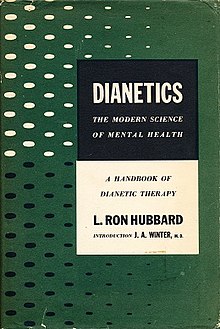3 Easy Facts About Dianetics Explained
3 Easy Facts About Dianetics Explained
Blog Article
Not known Factual Statements About Dianetics
Table of ContentsThe Greatest Guide To DianeticsGetting The Dianetics To WorkOur Dianetics Diaries7 Simple Techniques For Dianetics
I couldn't ever before not wish to receive anything that enters your mind for you- if it was or else, I wouldn't be sitting right here with you, doing this. I not only might never have a problem, or otherwise want to hear something that comes to mind for you, however I'm totally excited to know every idea, every thought, every picture or sensation that arises or shows up for you- do not ever before think otherwise, and if for one reason or another you do, please simply let me recognize! Occasionally, you may have an idea, and picture, idea or event pop up that does not seem to address the concern, or associate with it, however however, always do tell me concerning it, and as we continue, the importance will arise for you.This is inherent in the basis of processing, and the subject of this conversation: the basic roles of the counselor and the customer: The fundamental function of the therapist is, unlike "standard training", not to control, which suggests to implement and/or hinder, yet to rather work from the basis of EMPOWERING THE CUSTOMER.

Some Known Factual Statements About Dianetics
John Mcmasters shared this fundamental fact splendidly well in among his lectures on Power processing, where he explains just how he was asked what this "special propensity" was that he had for providing such excellent sessions; he needed to consider that for a moment, and detected that it was what he had not been doing, in addition to what he was doing: he had not been reviewing, judging, computer, or in reality, creating any type of ideas, let alone spoken expressions, after giving the command and while awaiting the PC to finish their response to their contentment; he was, simply and just, being present with the PC, and totally interested.
The duty of the counselor, showed; that was his "special flair". I have had my own experience which instructed me this well, really early on in the game. In 1982, having actually recently finished my training and internship on New Period Dianetics, I was running this on a PC, and there was a point in the session where (being a little bit wet behind the ears not yet having numerous hours under my belt as a professional auditor) the computer seemed to be "taking as well long" to share anything verbally after I gave him a command.
This secret ended up being one of the most valuable payment that John ever before made to the subject of treatment or bookkeeping (Dianetics). In my simple point of view, it is the click here to read best payment that anybody has actually ever before made to these subjectsthe application is completely non-judgemental, non-evaluative, and lacking any kind of recommendation, advice or opinion.no preconditioned agenda for individuals, or 'degrees' that they should do
In Idenics, the only resource of information regarding a customer is the private client. In Scientology we prided ourselves on not reviewing for people. But all that truly meant was that the auditor did not VERBALLY evaluate for the PC in session. The registrars and ethics officers evaluated for the computer.
The Best Guide To Dianetics

Any person who had ever before seen John audit might not assist however notice a distinct top quality in his bookkeeping."The customer's standard duty is to be there with the objective of relocating in the direction of their spiritual goals, and to openly and totally reveal and experience whatever materializes for them in responding to the inquiries and executing the instructions in the handling.
This is something to procedure as required. Likewise, individuals regularly have previous experience and/or indoctrination in auditing/processing which, in some methods, and to some levels, in fact misleads them right into mindsets, concepts and behavior patterns that stop the complete understanding of these duties, and so they will certainly have a tendency to hinder the expressing of what comes to mind, as in the examples offered over - Dianetics. * The initial, and possibly primary examples of mis-indoctrination causing much less than completely smooth and reliable sessions, can be located in specific elements of the training regimens, or "TR's":"TR's" are commonly an individual's first, or at the very least early, experience in Scientology, and while I will certainly go on to clarify what I view as the flaws in concept and practice, nonetheless, have a tendency to be resource significantly therapeutic, done as they are provided (Hubbard urges that "TR's are not refining, they are training", but factually, they are both processing AND training)
There is no "failing", and no rejection of the reality of this being handling. The emphasis, as it should be, is on experiencing the other individual's visibility.
Unknown Facts About Dianetics

Report this page